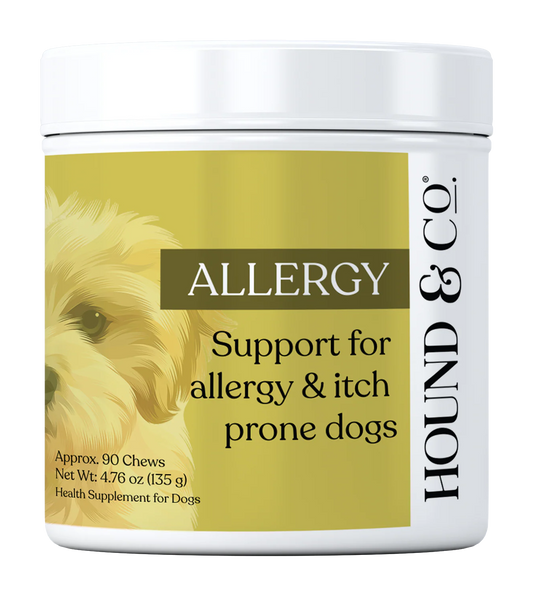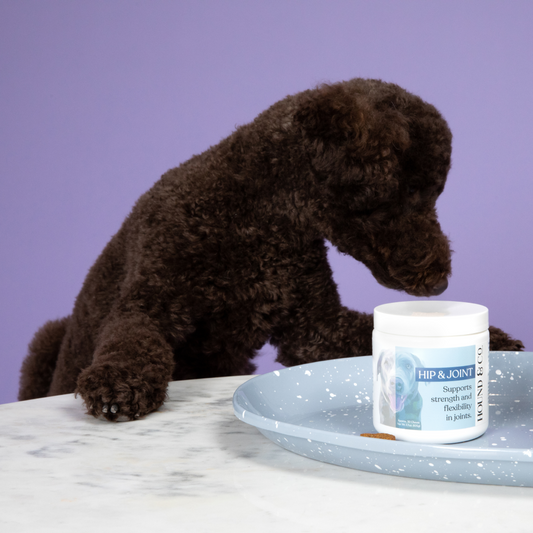Unraveling the Mystery: A Guide to Common Allergies in Dogs

Vet Reviewed by Dr. Jacob Klos, DVM

Understanding the various types of allergies that affect dogs is essential for pet parents to recognize and address potential allergic reactions in their beloved companions. In this comprehensive guide, we'll explore common allergens that trigger allergic reactions in dogs, including environmental allergens and food allergies. By identifying the causes and symptoms associated with each type of allergy, pet parents can take proactive steps to manage their dog's allergies and improve their overall well-being.
Environmental Allergens
Environmental allergens such as pollen, mold, and dust mites can trigger allergic reactions in dogs, resulting in symptoms such as itching, skin inflammation, and respiratory distress.
Causes:
- Pollen: Grasses, trees, and weeds release pollen particles that can trigger allergic reactions in sensitive dogs.
- Mold: Damp environments promote mold growth, leading to exposure to mold spores that may exacerbate allergies in dogs.
- Dust Mites: Household dust contains dust mites, microscopic organisms that can cause allergic reactions in dogs.
Symptoms:
- Itching: Excessive scratching, licking, and chewing of the skin, particularly in the paws, ears, and groin.
- Redness and Inflammation: Allergic dermatitis may manifest as red, inflamed skin patches and hot spots.
- Respiratory Symptoms: Sneezing, coughing, and nasal discharge may occur in dogs exposed to environmental allergens.
Food Allergies
Food allergies in dogs can lead to a range of symptoms, including skin irritation, gastrointestinal upset, and chronic ear infections, highlighting the importance of identifying and addressing potential food allergens.
Causes:
- Protein Sources: Beef, chicken, dairy, and grains like wheat and corn are common allergens found in dog food.
- Additives and Preservatives: Artificial colors, flavors, and preservatives used in commercial dog food can contribute to food allergies in dogs.
Symptoms:
- Skin Irritation: Itching, redness, and inflammation of the skin, often accompanied by hair loss and skin lesions.
- Gastrointestinal Upset: Digestive issues such as vomiting, diarrhea, and flatulence may indicate food allergies in dogs.
- Chronic Ear Infections: Recurrent ear infections characterized by itching, redness, and foul odor may be linked to food allergies.
By recognizing the causes and symptoms associated with environmental allergens and food allergies, pet parents can take proactive measures to manage their dog's allergies effectively. Consultation with a veterinarian is essential for accurate diagnosis and tailored treatment plans to address your dog's specific needs. Stay tuned for future installments where we'll explore effective treatment options and management strategies for dog allergies.
Stay tuned for part 2 in our allergy series: Scratch No More: Natural Solutions for Your Dog's Itchy Skin Woes!









